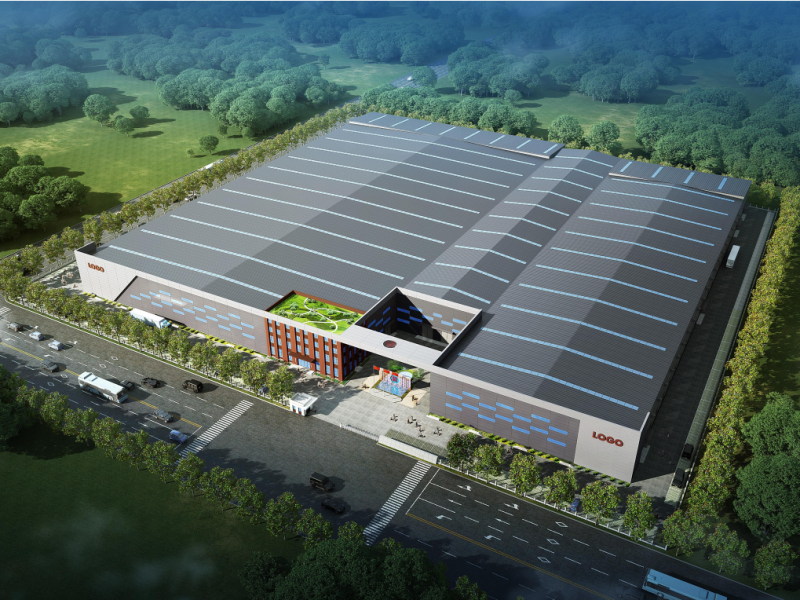
Modular Medical Clinics: Rapid, Safe, and Scalable Healthcare Facilities
Healthcare providers face increasing demand for efficient, accessible, and adaptable medical facilities. Traditional construction methods are often slow, costly, and inflexible, limiting the ability to quickly respond to urgent healthcare needs.
Modular medical clinics provide an innovative solution. Using prefabricated steel frames, modular panels, and customizable layouts, these clinics can be rapidly deployed, ensuring high standards of safety, hygiene, and functionality.
This article explores the benefits, applications, and design considerations of modular medical clinics for B2B clients and healthcare institutions.
Why Modular Medical Clinics Are Ideal
Modular medical clinics combine speed, safety, and operational flexibility:
- Rapid Deployment: Prefabricated components allow clinics to be assembled on-site quickly.
- Durable Materials: Steel frames resist corrosion, wear, and environmental hazards.
- Customizable Layouts: Clinics can be tailored to outpatient services, emergency care, laboratories, and administrative offices.
- Scalable Solutions: Easily expand or reconfigure facilities as healthcare demands evolve.
These advantages make modular clinics ideal for hospitals, government healthcare projects, and private healthcare providers.
Key Advantages of Modular Medical Clinics
- Fast Construction
Prefabricated modules reduce construction time, enabling clinics to operate within weeks rather than months. - Safety and Hygiene
Smooth surfaces, durable materials, and proper ventilation support sterile environments, reducing infection risks. - Flexible Layouts
Modular clinics can include consultation rooms, diagnostic labs, emergency units, and administrative areas. - Cost-Effective
Reduced labor, material waste, and maintenance costs make modular clinics a financially efficient solution. - Energy Efficiency
Insulated panels, natural lighting, and HVAC integration reduce energy consumption and operating costs. - Sustainability
Prefabrication minimizes on-site waste, and steel is fully recyclable, supporting environmentally responsible construction.
Applications Across Healthcare Facilities
Modular medical clinics are versatile and suitable for various healthcare needs:
- Rural Healthcare: Rapidly deployed clinics in underserved or remote areas.
- Temporary or Emergency Facilities: Hospitals, disaster relief, or epidemic response units.
- Private Clinics and Laboratories: Flexible spaces for outpatient services and diagnostic testing.
- Vaccination Centers: Quick setup for mass vaccination or health campaigns.
- Hospital Expansion Projects: Modular units can supplement existing facilities for added capacity.
Design Considerations for B2B Clients
When planning modular medical clinics, healthcare institutions should consider:
- Patient Flow and Layout: Efficient design for consultation, treatment, and waiting areas.
- Hygiene and Sanitation: Easy-to-clean surfaces, ventilation, and waste management systems.
- Climate Control: HVAC systems for temperature and air quality control.
- Accessibility: Compliance with local building codes and accessibility standards.
- Expansion Potential: Modular units allow future expansion or reconfiguration without disruption.
Case Studies
- Emergency Healthcare Facility (USA):
Modular clinics were deployed within 6 weeks to provide urgent medical services during a regional health crisis. - Rural Healthcare Expansion (Africa):
Prefabricated modular clinics improved access to medical care in remote villages, supporting sustainable healthcare delivery. - Corporate Medical Facility (Europe):
Modular units integrated with offices and laboratories enhanced employee healthcare services while reducing operational costs.
Why B2B Clients Prefer Modular Medical Clinics
For hospitals, government projects, and private healthcare providers, modular medical clinics offer:
- Rapid deployment and immediate operational readiness
- Safe, hygienic, and durable infrastructure
- Flexible layouts adaptable to healthcare requirements
- Scalable design for future growth
- Energy-efficient and sustainable construction
- Compliance with healthcare and building standards
These advantages make modular medical clinics a strategic investment for modern healthcare infrastructure.
Conclusion
Modular medical clinics provide rapid, safe, and scalable solutions for healthcare delivery. They streamline construction, reduce costs, and allow long-term flexibility to meet evolving medical demands.
For B2B clients and healthcare institutions, modular clinics represent a smart investment in efficient, reliable, and adaptable healthcare facilities.
